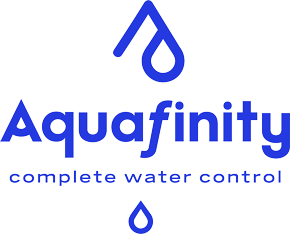Products
When is it time to clean the sensor probes on the BECS Chemical controller?
When there is a variation between a test kit reading and what the controller is displaying. At a minimum, we recommend once per month and much more often in a heavily used body of water. The entire process can be automated with a probe wash system that performs the wash daily keeping the sensor’s reading output very steady.
Can I get my BECS Chemical controller to communicate and send messages/alerts to my phone?
Most BECS models 3,5, and 7 sold within approximately the last 3 years have the capability of being linked to your phone for alert notification. Older systems can even be upgraded. The amount of data retrieved is dependent upon the model. Contact your local Service Supported Distributor, (SSD) and they can help assist you in getting online.
My heater is leaking water, what happened?
It could be something simple such as a fitting or threaded connection. If it is coming from within the heater it most likely is a compromised heat exchanger. These repairs are costly and require a high-level technician to evaluate and repair.
Why doesn’t my test kit reading match my Chemical controller?
Confirm you are using your test kit properly. Sensor probes that are dirty or failing can lead to inaccuracy in readings. Additionally, changes in the stabilizer level or an out-of-range pH level can affect controller readings. Contact your local Aquafinity office for technical assistance.
My system flow rate is down, what happened?
Assuming the flowmeter is installed in the proper location and operating correctly the most common reason flow in the system is down is due to a dirtier-than-normal filter. and is most likely the time to backwash or clean the filter
My circulation pump is making a loud rattling noise.
Air entrapment in the pump volute (cavitation) is the most likely cause of pump operational noises. This assumes the pump and motor bearing are operating to spec and not causing excessive noise.
Why are air bubbles coming in the water inlets to the pool?
There is air entering the system on the suction side of the pump or through a venturi feed system. Have the system evaluated by a qualified technician to determine the source and prevent further damage.
General
How do I know if my pool has a leak?
The first area to notice has your water bill gone up, is the automatic fill line on more often than usual. Is chemical usage up from the past? Actual testing of the pool shell or areas within it is a bit more complicated but typical suspect locations are light niches, main drains, skimmers, and surge pits if your pool has one.
What makes the staining appear on my pool plaster?
Typical staining of the pool plaster is precipitation of minerals out of the pool water such as copper sulfate (greenish color) or iron deposits (rust color). Maintaining proper pH and total alkalinity levels contributes heavily towards preventing staining. If your makeup (fill water) is known to have a high mineral content a stain-preventing chemical can be used following manufacturers labeling.
What does a balanced pool water chemistry mean?
Balanced pool water is observed through indexes used in the industry such as the LSI and Ryznar indexes. These indexes look at values from pH, calcium hardness, total alkalinity, temperature, and dissolved solids Inputted into a calculator these values produce the true nature of water balance.
What does ORP mean and where can we learn about it?
ORP stands for Oxidation Reduction Potential. Currently, there aren’t many education opportunities to learn about ORP, however, we’ve provided three ways for you to learn more below:
- First, you can contact your local Aquafinity office and we’ll provide you with additional information on ORP
- Next, you can schedule an on-site service review and one-on-one training session
- Lastly, you can enroll in our 5-star, online class that will help demystify the technology for you and your facility. Sign up at ces.learnupon.com and use discount code AquafinityORP20 for a 20% discount
Typical preventive maintenance schedules for the main pool equipment?
- Filter: once per year to confirm backwash system operation and media analysis, in addition to backwash valve service once every 1-3 years dependent upon model.
- Chemical controller: once per month to confirm operation and safety switches
- Chemical feed pumps: once per year for wet end rebuild, dependent upon usage once per month for injector cleaning and quarterly suction tube replacement
- Heater: dependent upon usage every 6-12 months for cleanings, combustion, and flow adjustments
- UV system: dependent on usage and hours of run time every 6-12 months for cleanings, lamp, and gasket replacement.
- Chlorine generation system: every 6-12 months for cleanings, chemistry evaluations, and voltage checks. Dirty cells and high Phosphates can significantly affect lifespan.
Why are there salt-looking stains on my deck?
Minerals from pool water that has evaporated on the deck can have salt or calcium in them. The calcium is not harmful but the salt can over time lead to deck degradation. Rinse your pool decks off regularly with fresh water.

